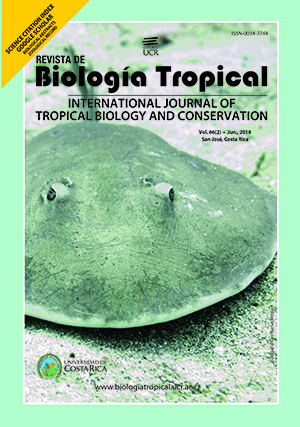Abstract
Letters from your editor
Sometimes, the editors of the large journals published in rich countries discriminate against the authors of tropical countries because of prejudice and not because of manuscript quality. Tropical researchers have two options: insist on publishing in these journals of the so called “Millionaire’s Club”, where there is often a natural disinterest in tropical issues; or to support the development of good tropical quality journals. The second option has ethical and practical advantages for everyone.
References
Gibbs, W. W. (1995). Lost science in the tropics. American Scientist (August), 76-83.
Monge-Nájera, J. (2002). How to be a tropical scientist. Revista de Biología Tropical, 50(3-4), xix-xxiii.
Monge-Nájera, J., & Ho, Y. S. (2017a). Bibliometrics of Nicaraguan publications in the Science Citation Index Expanded. Revista de Biología Tropical, 65(2), 643-655.
Monge-Nájera, J., & Ho, Y. S. (2017b). Honduras publications in the Science Citation Index Expanded: institutions, fields and authors. Revista de Biología Tropical, 65(2), 657-668.
Newland, E. D. (1991). George Bennett and Sir Richard Owen: A case study of the colonization of early Australian science (pp.55-74). In R.W. Home & S. G. Kohlstedt (Eds.), International science and national scientific identity. Dordrecht, Holanda: Kluwer Academic.
##plugins.facebook.comentarios##

This work is licensed under a Creative Commons Attribution 4.0 International License.
Copyright (c) 2018 Revista de Biología Tropical


